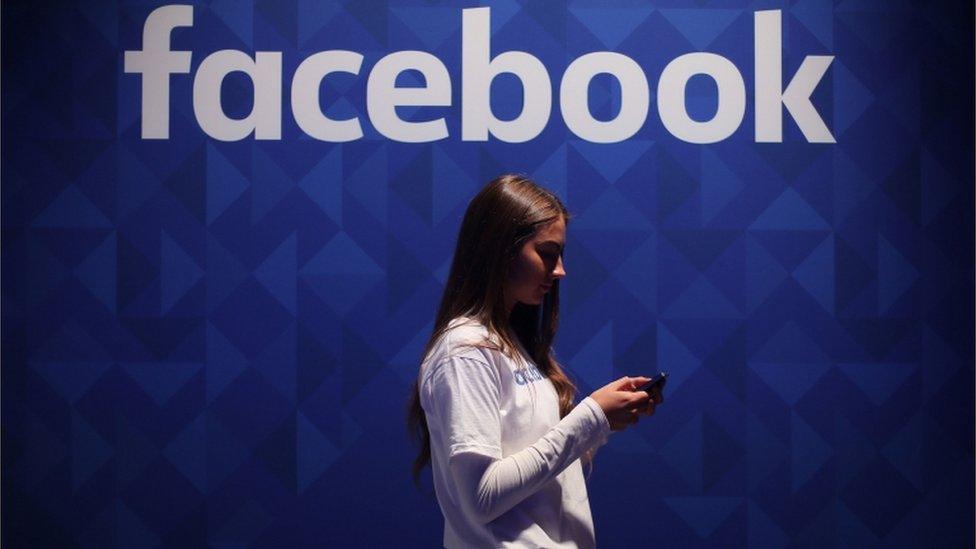Facebook: Post more to feel better about yourself
- Published

Facebook can make the aftermath of failed relationships harder to handle, research suggests
Facebook has defended itself against claims that using the site can damage wellbeing and mental health.
In a blogpost, external, it said while there was evidence it could negatively affect mood, the way it affected people was determined by how they used it.
Facebook's downsides could be combated by making more use of the site and interacting positively, it said.
A social media expert said the way Facebook was built made it hard to use it in those better ways.
Active use
Questions about the impact of Facebook came into focus last week, following comments from Sean Parker, Facebook's first president, and Chamath Palihapitiya, external, a former executive at the company.
Mr Parker said the site set up "feedback loops" that helped to ensure people kept coming back.
Mr Palihapitiya said the social network was "ripping society apart" and exploited human psychology to maintain its hold on its users.
In response, Facebook said it had changed a lot in the six years since Mr Palihapitiya left and was no longer interested in just expanding its user base.
In the more recent blog, Facebook's director of research, David Ginsberg, said there was a continuing internal debate at the company about whether time spent on social media was good for people.
Mr Ginsberg said there had been "compelling research" that linked a rise in depression among teenagers to rising consumption of social media and that looked at the way technology had changed relationships.
But set against these disadvantages were benefits that showed social-media use could improve peoples' moods and help maintain the social ties that directly influenced wellbeing and resilience.
What made the difference, he said, was how people used Facebook.
"Just like in person, interacting with people you care about can be beneficial, while simply watching others from the sidelines may make you feel worse," wrote Mr Ginsberg.

Spending time off Facebook can improve people's well being, suggests research
Being more active on Facebook and proactively engaging with people was better than just passively consuming updates and posts, he said.
Facebook was now engineering the site to help people be active participants instead of just spectators, Mr Ginsberg said.
It had also created tools, such as the Take A Break feature, which let people manage how they interacted with former partners, to help limit emotional fallout.
Dr Bernie Hogan, a senior research fellow at the Oxford Internet Institute who has written extensively about Facebook, was sceptical about how easy it would be for people to use the site for "positive interaction".
"What the researchers are valiantly trying to do is set out what they believe is a good way to use Facebook," he said. "What they are not talking about is how that course is not what Facebook is being designed for."
"They are saying that the solution is more interactivity, more personal feedback and less broadcasting," he said. "The problem is that they are engineering tools for more broadcasting."
- Published12 December 2017
- Published5 December 2017
- Published24 August 2017
- Published30 November 2017
